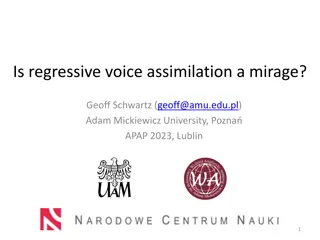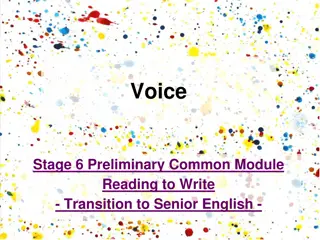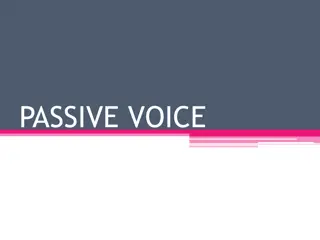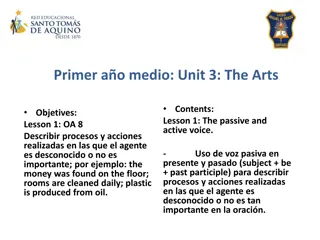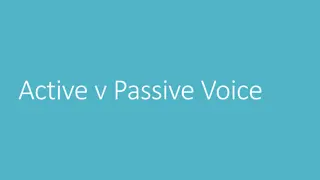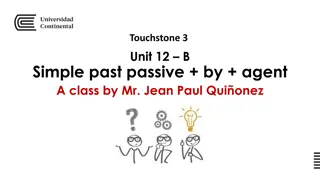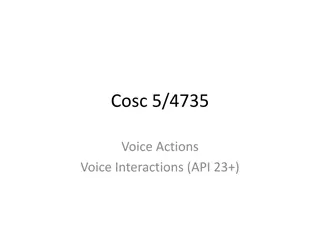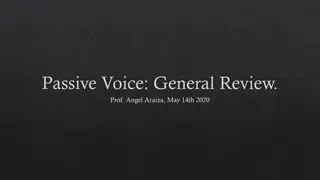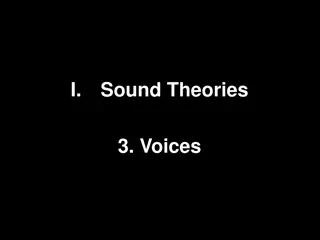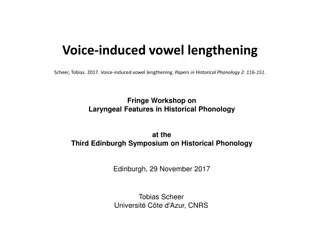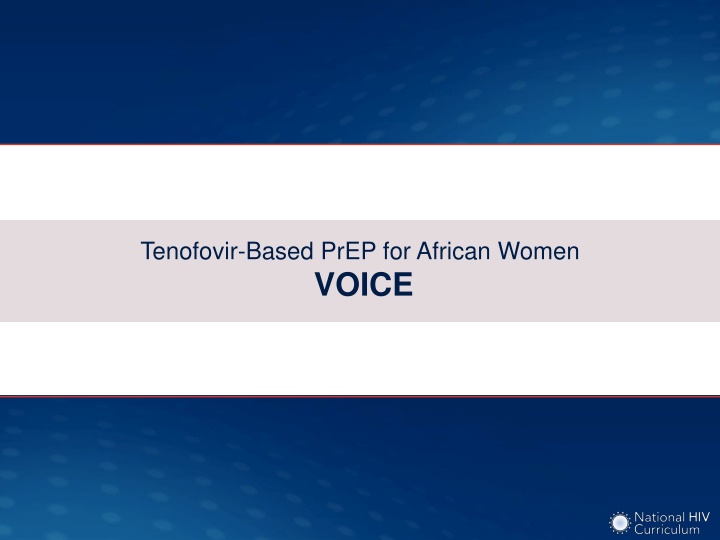
Tenofovir-Based PrEP Trial for African Women: VOICE Study Details
Explore the Tenofovir-Based PrEP Trial for African Women known as VOICE, which aimed to assess the effectiveness of different regimens in preventing HIV infection. The study involved oral and vaginal interventions, with results indicating low adherence and suboptimal outcomes. Learn about the trial design, eligibility criteria, trial timeline, and key findings.
Download Presentation

Please find below an Image/Link to download the presentation.
The content on the website is provided AS IS for your information and personal use only. It may not be sold, licensed, or shared on other websites without obtaining consent from the author. If you encounter any issues during the download, it is possible that the publisher has removed the file from their server.
You are allowed to download the files provided on this website for personal or commercial use, subject to the condition that they are used lawfully. All files are the property of their respective owners.
The content on the website is provided AS IS for your information and personal use only. It may not be sold, licensed, or shared on other websites without obtaining consent from the author.
E N D
Presentation Transcript
Tenofovir-Based PrEP for African Women VOICE Trial: Background Study Design: VOICE N = 5029 women Age 18-45 Setting: 14 sites in South Africa, Uganda, and Zimbabwe Eligibility: - Women who reported vaginal sex in previous 3 months - Not pregnant or breastfeeding - Willing to use effective contraception Regimens - Tenofovir 1% gel daily (TFV gel) - Tenofovir 300 mg po daily (TFV tablet) - Tenofovir 300 mg-emtricitabine 200 mg po daily (TDF-FTC tablet) Source: Marrazzo JM, et al. N Engl J Med. 2015;372:509-18.
Tenofovir-Based PrEP for African Women VOICE Trial: Background Women randomized n =5,029 Lost to follow-up n = 38 HIV+ at enrollment n = 22 TDF tablet n = 993 TDF-FTC tablet n = 985 Placebo tablet n = 999 TFV gel n = 996 Placebo gel n = 996 Abbreviations: TDF = tenofovir; TDF-FTC = tenofovir DF-emtricitabine Source: Marrazzo JM, et al. N Engl J Med. 2015;372:509-18.
Vaginal and Oral Interventions to Control the Epidemic VOICE Trial: Timeline September 2009 to June 2011: accrual period Independent DSMB review every 3-6 months September 2011: oral TDF arm stopped Deemed safe but not effective November 2011: vaginal TFV gel arm stopped Deemed safe but not effective August 2012: follow-up completed for oral TDF-FTC arm Deemed safe but not effective Adherence shown to be low in all arms Source: Marrazzo JM, et al. N Engl J Med. 2015;372:509-18.
Vaginal and Oral Interventions to Control the Epidemic VOICE Trial: Results 100 Number of HIV Infections P = 0.37 80 P = 0.81 70 P = 0.07 61 61 60 60 52 35 40 20 0 Oral TDF Oral placebo* Oral TDF-FTC Oral placebo TFV gel Placebo gel *Data censored at time that oral TDF arm stopped Source: Marrazzo JM, et al. N Engl J Med. 2015;372:509-18.
Vaginal and Oral Interventions to Control the Epidemic VOICE Trial: Adherence Mean Proportion of Quarterly Samples with Tenofovir Detected (%) 100 Tenofovir Detected (%) 80 60 49 40 30 29 25 20 0 Oral TDF (in plasma) Oral TDF-FTC (in plasma) Tenofovovir gel (in plasma) Tenofovovir gel (in vaginal swab) Source: Marrazzo JM, et al. N Engl J Med. 2015;372:509-18.
Vaginal and Oral Interventions to Control the Epidemic VOICE Trial: Conclusions Conclusions: None of the drug regimens we evaluated reduced the rates of HIV-1 acquisition in an intention-to- treat analysis. Adherence to study drugs was low. Source: Marrazzo JM, et al. N Engl J Med. 2015;372:509-18.
Acknowledgment The National HIV Curriculum is an AIDS Education and Training Center (AETC) Program supported by the Health Resources and Services Administration (HRSA) of the U.S. Department of Health and Human Services (HHS) as part of an award totaling $800,000 with 0% financed with non-governmental sources. This project is led by the University of Washington s Infectious Diseases Education and Assessment (IDEA) Program. The content in this presentation are those of the author(s) and do not necessarily represent the official views of, nor an endorsement, by HRSA, HHS, or the U.S. Government.

